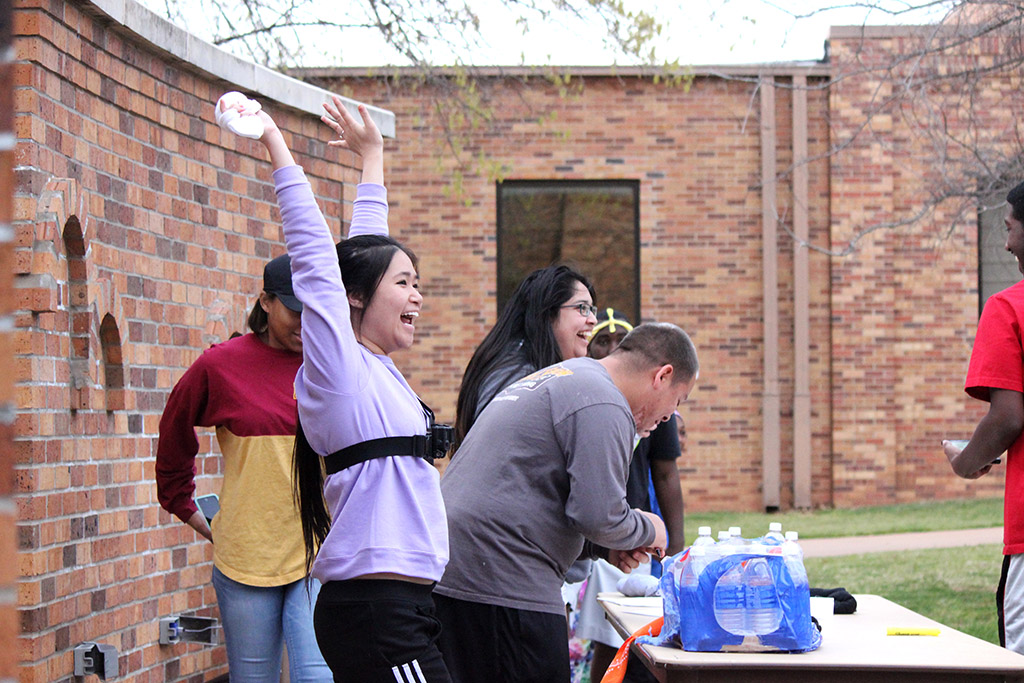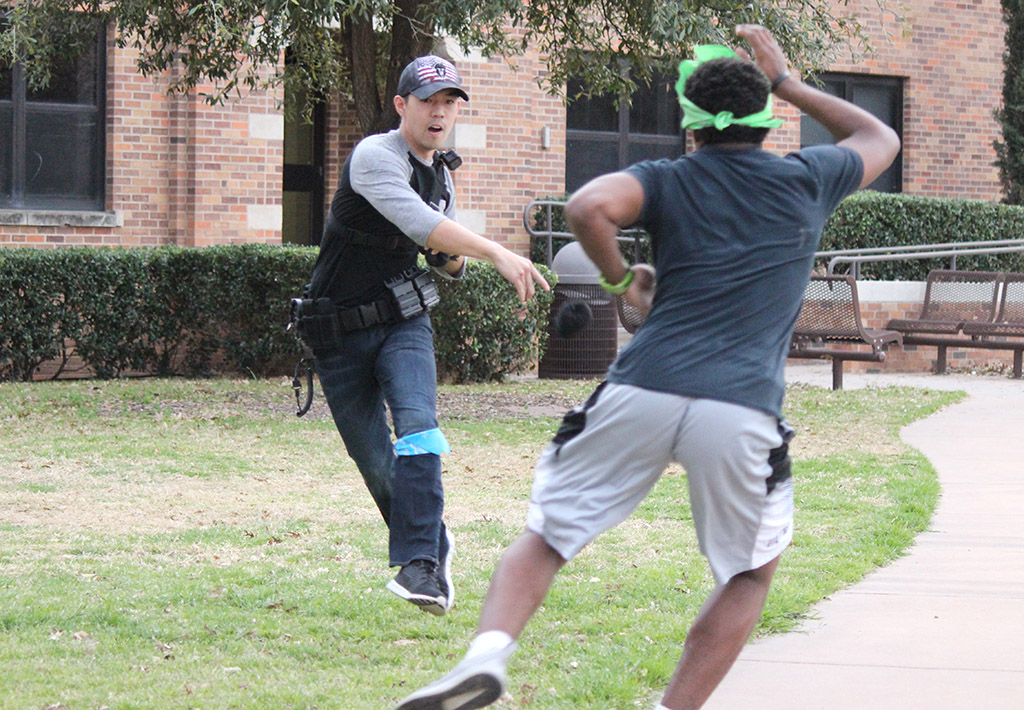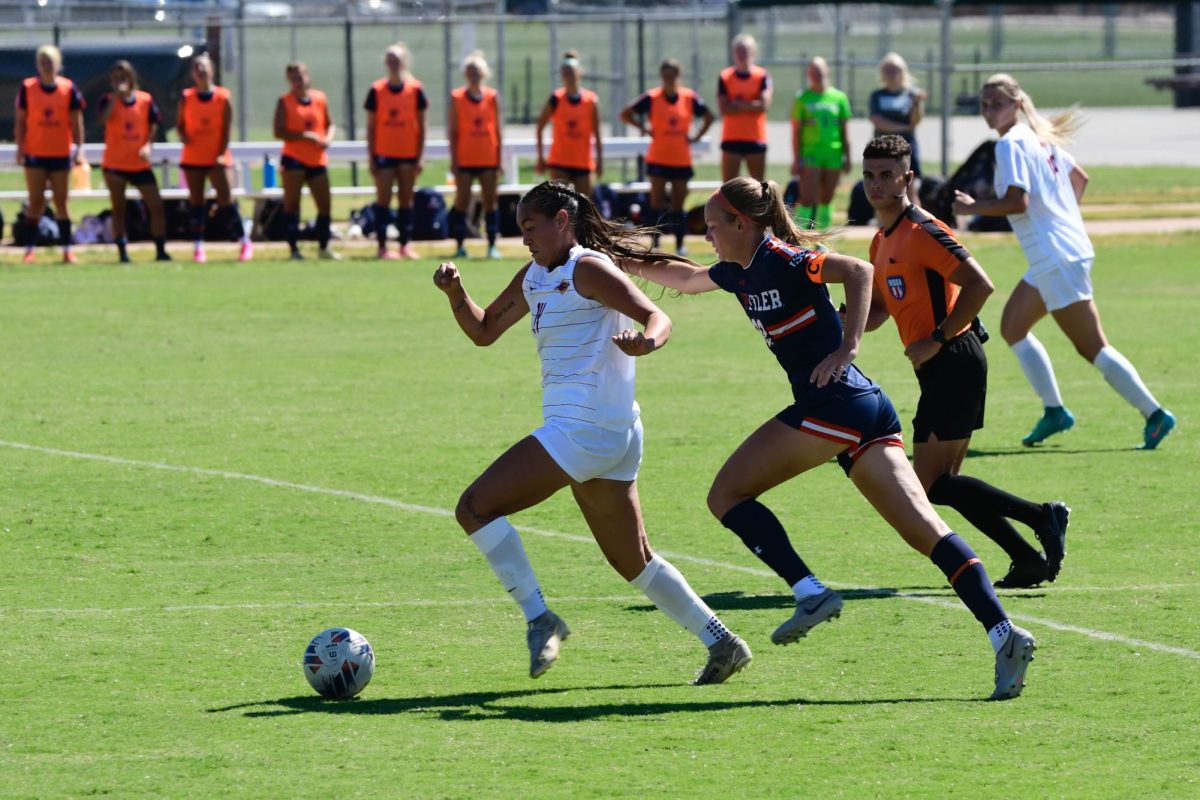
A campus-wide game of tag, known as Humans vs. Zombies, is played at hundreds of universities across the nation. While there are basic rules for everyone to follow, each university designates moderators to adjust these rules for the individual campus.
With 150 students participating, the game began on March 1 and ended on March 11. The moderators chose one player as the original zombie, and each of the humans were given ID cards to surrender to the zombie that tags them as the game continued.
Mario Ramirez, University Programming Board advisor and game moderator, said, “It’s so chaotic, but it’s really fun. You see some of the hard work that you put into some of these events pay off really fast like that. Everyone’s excited to be hiding, throwing themselves into bushes and running from the classrooms. Everyone enjoys it, so it’s a neat process to watch.”
Moderators set up the missions, take care of the overall environment of the game, and resolve game conflict. There were five moderators at this year’s game of tag—three student moderators: Juan Mercado, D’Aaron Clayton and Hannah King, and two faculty/staff moderators: Mario Ramirez and AJ Lopez.
Moderator and dental hygiene sophomore Hannah King said, “The best part of being a moderator was meeting different people that I wouldn’t necessarily talk to on my own.”
King also said that being moderator wasn’t always fun and games.
King said, “The worst part was dealing with people’s disagreements. A lot of people were trying to find loopholes in the rules based on individual circumstances.”
Moderator and pre-dental junior D’Aaron Clayton agreed with King.
Clayton said, “It was nice not having to deal with the stress of people following me, but the worst part was seeing the creative ability of students to change the rules and control each other. People believed other students over us [moderators].”

Computer science freshman Darien Cortez was the first human to complete the final elite mission, therefore becoming top human and winner of the game. He said his journey was not always easy.
Cortez said, “I almost got caught outside three different times, so I figured out pretty quickly that I needed to know where the fastest zombies were at all times. My strategy was basically to lay as low as I could.”
Sociology sophomore and original zombie Kirsten Durr said she knew she couldn’t tag everyone without reinforcements, so she tagged psychology sophomore John Smith on the second day. He also happens to be her boyfriend.
Durr said, “We started working together. I started being a decoy and we started acting like partners-in-crime. Once we became zombies it was very competitive. I still think he needed my help though.”
While Smith said he and Durr had originally agreed on a two-week break from their relationship during the game, he changed his mind once the game started.
Smith said, “I completed the first mission as a human, but I came back to where Kirsten was. It was hot and I knew she hadn’t eaten, so I brought her a gallon of cold water and Chick-Fil-A. I ended up telling her to just tag me, and that same day, I got seven people. Even though she did help me, I still would’ve won without her help.”
Overall, students were receptive to this campus-wide game of tag, according to Ramirez. UPB’s plan is to keep the game going every spring because students seem to really enjoy it.












